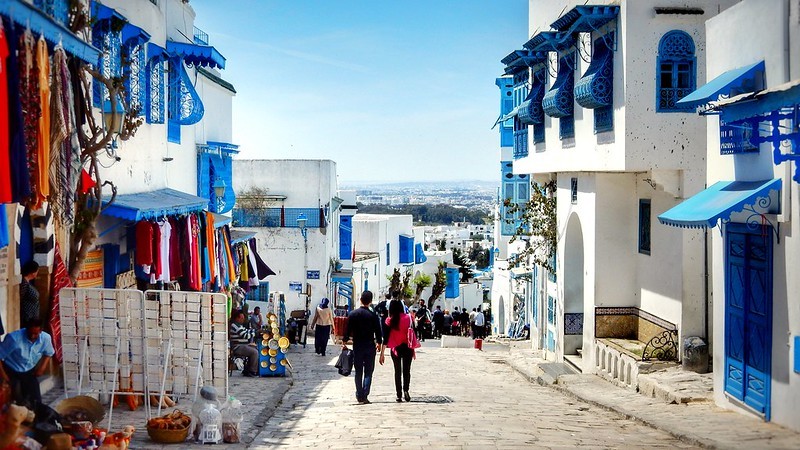
In its annual report on the "freedom of religion and belief" in the largely Muslim country of Tunisia for 2020, the Attalaki Association indicated that even a decade after the Tunisian Revolution, Christians continue to be persecuted and receive a different kind of treatment compared to other groups.
The Attalaki Association for Liberty and Equality Committee on Religious Freedom is a non-profit organization in Tunisia founded in 2016 whose goal is to defend religious freedom and give voice to the oppressed religious minorities.
"We will seek to work more and more openly in order to participate in building a nation that can accommodate all ideas, religions, and beliefs. A homeland in which human dignity and rights are protected," the organization wrote on their website.
The Tunisian Revolution, also known as the Jasmine Revolution, is a protest against the corrupt and oppressive administration led by then-president Zine El Abidine Ben Ali, who was forced to step down from the position in 2011.
The Tunisian Revolution also resulted in the Arab Spring protest across the Middle East and North Africa to fight for democracy in Tunisia.
However, all these efforts in the past decade are still insufficient to combat religious oppression in the country, which is seen in the annual report published by the Attalaki Association, the Christian Post reported.
The report also mentioned Tunisia's 2014 Constitution which supposedly should "enshrine freedom of conscience" and free their country from "tyranny."
In Article 6 of the 2014 Constitution, it states that:
"The state is the guardian of religion. It guarantees freedom of conscience and belief, the free exercise of religious practices and the neutrality of mosques and places of worship from all partisan instrumentalization."
And in Article 21:
"All citizens, male and female, have equal rights and duties, and are equal before the law without any discrimination."
However, despite their claims of freedom and equality, they only allow Muslim citizens to run for the presidency and other government and military positions.
It clearly states in Article 74 that a person's religion must be Islam in order to be president:
"Every male and female voter who holds Tunisian nationality since birth, whose religion is Islam shall have the right to stand for election to the position of President of the Republic."
Religious minorities in Tunisia are also being subjected to different forms of oppression, that is why a lot of Christians in Tunisia often hide their religious identity to avoid being discriminated against.
A report also claims that some citizens are being excluded from basic citizenship right because of their religion even though the country's constitution states that every citizen is subjected to all the constitutional rights, regardless of their religious identity.
In addition to the report, the state often disregards the safety and freedom of religious minorities like Christians, Jews, Baha'is, and others, as these groups are often subjected to discrimination.
As an example of these oppressions, a Christian family in Southern Tunisia was harassed last March, and a family member was dragged by her hair as she was being tortured repeatedly by her neighbors. They were also called hateful names by the neighbors.
The family went on to file a report against their neighbors who attacked them, but the police officials did not entertain them until they submitted a medical charge.
After being obviously harassed, the police officials only questioned them regarding their religious identity and didn't really care much about the attack.
Thankfully, the Attalaki Association is currently helping the family with their case and appointed a lawyer for them.
There have been numerous reports of attacks and oppression on Christians in Tunisia like the Christian girl who was arrested for wearing a cross necklace, a Christian pastor who was threatened on Facebook, and a woman who was beaten by her brother for not having the same religion (Islam) as his.
There are more incidents like these that are being left unattended because authorities don't give much attention to cases relating to Christianity.
"The threats faced by non-Muslim Tunisians and Muslims from sectarian minorities in Tunisia are a product of the legal disregard for the status of these semi-marginalized minorities," the report read.
Open Doors USA reported that there has been an increase in violence against the Christian minorities in Tunisia where Tunisia ranked No. 26 for Christian persecution.
Priscilla Hwang, a Canadian journalist commented on the issue saying, "Tunisian Christians face discrimination and targeting that is often obscure and hidden to the public eye," Hwang said. "It affects their day-to-day lives. Because of their Christian identities, many experience job insecurity, abandonment from family, friends and even fiancés; they are victims of verbal, mental and physical abuse."



































